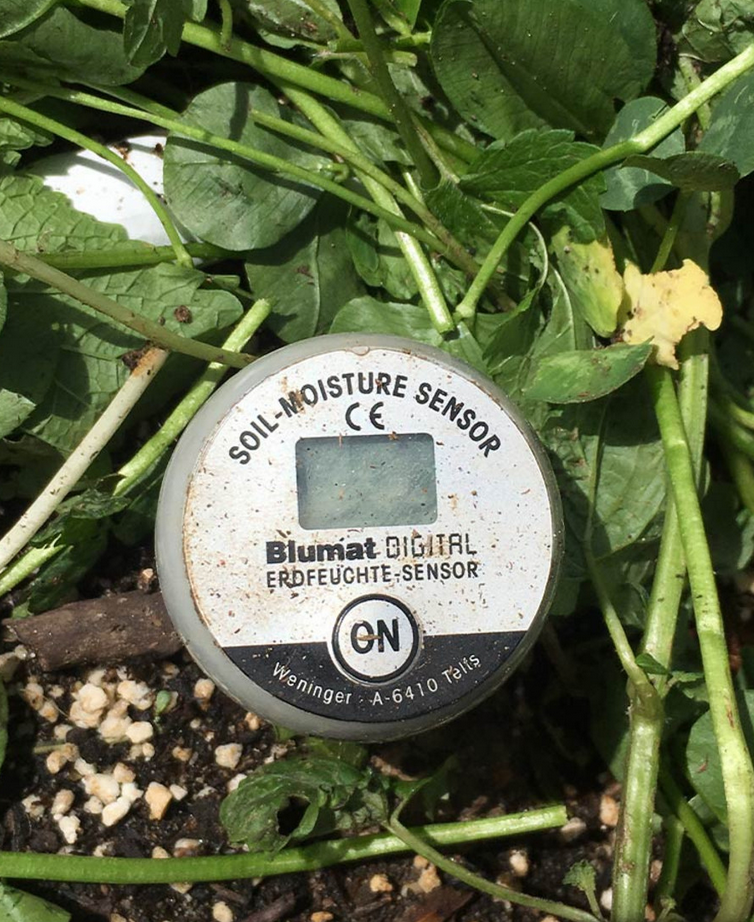Just How a Moisture Meter Can Assist You Maintain Optimum Conditions in your house or Office
Just How a Moisture Meter Can Assist You Maintain Optimum Conditions in your house or Office
Blog Article
The Ultimate Guide to Dampness Meters: A Comprehensive Review and Exactly How They Can Save You Money
In the world of building upkeep, construction, and numerous industries, the significance of properly measuring moisture levels can not be overemphasized. Dampness meters act as vital devices in identifying and keeping an eye on moisture web content in materials, aiding in avoiding expensive problems and guaranteeing the top quality of items. Comprehending the subtleties of various types of wetness meters, their applications, and the potential cost-saving benefits they provide can be a game-changer for businesses and experts alike. Uncovering exactly how these devices can not just enhance procedures however also add to economic savings is a trip worth embarking on.
Kinds Of Moisture Meters
Different kinds of wetness meters are offered for various applications in various industries. One typical kind is the pin-type moisture meter, which determines the electrical resistance between 2 pins placed right into a material. This kind appropriates for timber, drywall, and other structure materials. Pinless dampness meters, on the other hand, use electromagnetic sensor plates to scan a bigger location without triggering damages to the product's surface. Moisture Meter. These meters are excellent for quickly analyzing wetness degrees in huge areas such as floors and walls.

Infrared moisture meters gauge the thermal residential properties of a material to establish its dampness material non-invasively, making them helpful for applications where pin or pinless meters may not be suitable. Recognizing the various kinds of moisture meters offered can assist sectors choose the most appropriate tool for their particular wetness measurement demands.

Benefits of Utilizing Dampness Meters
Wetness meters offer invaluable advantages in precisely monitoring and examining moisture degrees in diverse products and atmospheres (Moisture Meter). One of the main benefits of using dampness meters is the avoidance of potential damages triggered by excess moisture. By identifying and addressing high dampness levels early on, moisture meters help to stop mold and mildew development, rot, and architectural damage in buildings, saving both time and money on fixings. Furthermore, wetness meters help in making certain the high quality of products throughout construction or production processes. By properly measuring dampness web content, these devices aid keep the integrity of wood, drywall, concrete, and other materials, decreasing the danger of issues or failings.
Furthermore, using dampness meters can lead to increased power effectiveness. In farming settings, dampness meters play a crucial function in optimizing crop yields by enabling farmers to keep an eye on soil moisture degrees and make informed watering choices.
How to Choose the Right Moisture Meter
When choosing a dampness meter, it's vital to make sure that the meter is suitable for the details product you will certainly be testing. Different products have varying electrical residential or commercial properties that can affect wetness readings, so picking a meter created for your material is critical for precise results. By thoroughly assessing these elements, you can select a dampness meter that meets your demands and gives accurate dampness dimensions for your projects.
Correct Techniques for Dampness Meter Use

Price Cost Savings Through Dampness Meter Applications
How can the strategic use of moisture meters lead to substantial expense savings across various industries? In the agriculture industry, wetness meters help in determining the optimum time for harvesting plants, protecting against over-drying or excess dampness that can affect the final product's quality.
In a similar way, in building, moisture meters help prevent costly damages by detecting moisture degrees in building materials, such as wood or concrete, which can bring about architectural concerns if not dealt with quickly. By determining problem areas early on, professionals can take corrective procedures to avoid substantial repair services or substitutes, inevitably saving time and money.
In addition, in the food processing sector, dampness meters are necessary for checking product high quality and making sure compliance with security laws. By properly measuring dampness material in foodstuff, manufacturers can stop perishing, maintain freshness, and lower waste, resulting in significant expense financial savings. In general, the critical application of wetness meters is a valuable investment that can cause considerable expense decreases and enhanced performance throughout different industries.
Verdict
To conclude, moisture meters are beneficial devices for determining and finding wetness levels in various products. By making use of the ideal dampness meter and complying with proper strategies, individuals can successfully avoid pricey problems caused by excess dampness. Spending in a quality dampness meter can bring about considerable price savings in the long run by recognizing prospective concerns early on and enabling timely removal. Eventually, wetness meters are crucial tools for maintaining the stability and long life of products and structures.
Wetness meters serve as indispensable tools in detecting and keeping track of moisture material in products, helping in preventing costly damages and making sure the quality of products. Infrared moisture meters measure the thermal homes of a material to determine its dampness content non-invasively, making them valuable for applications where pin or pinless meters may not be ideal.Wetness meters provide vital benefits in accurately examining and monitoring moisture levels in diverse materials and atmospheres. In agricultural settings, moisture meters play a critical function in more helpful hints enhancing crop returns by making see here it possible for farmers to monitor dirt dampness degrees and make informed irrigation choices.In conclusion, moisture meters are useful devices for identifying and measuring moisture levels in various products.
Report this page